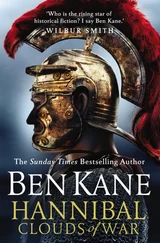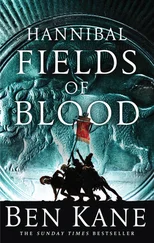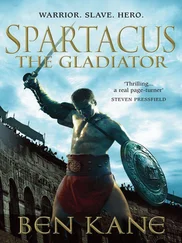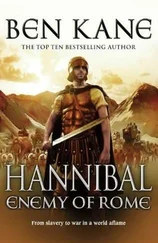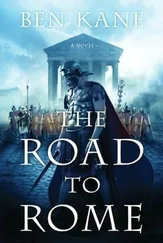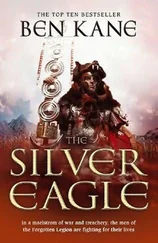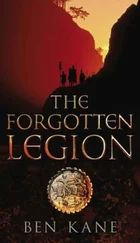Ben Kane - Eagles at War
Здесь есть возможность читать онлайн «Ben Kane - Eagles at War» весь текст электронной книги совершенно бесплатно (целиком полную версию без сокращений). В некоторых случаях можно слушать аудио, скачать через торрент в формате fb2 и присутствует краткое содержание. Год выпуска: 2015, ISBN: 2015, Издательство: Random House, Жанр: Исторические приключения, на английском языке. Описание произведения, (предисловие) а так же отзывы посетителей доступны на портале библиотеки ЛибКат.
- Название:Eagles at War
- Автор:
- Издательство:Random House
- Жанр:
- Год:2015
- ISBN:9781409052210
- Рейтинг книги:3 / 5. Голосов: 1
-
Избранное:Добавить в избранное
- Отзывы:
-
Ваша оценка:
- 60
- 1
- 2
- 3
- 4
- 5
Eagles at War: краткое содержание, описание и аннотация
Предлагаем к чтению аннотацию, описание, краткое содержание или предисловие (зависит от того, что написал сам автор книги «Eagles at War»). Если вы не нашли необходимую информацию о книге — напишите в комментариях, мы постараемся отыскать её.
Eagles at War — читать онлайн бесплатно полную книгу (весь текст) целиком
Ниже представлен текст книги, разбитый по страницам. Система сохранения места последней прочитанной страницы, позволяет с удобством читать онлайн бесплатно книгу «Eagles at War», без необходимости каждый раз заново искать на чём Вы остановились. Поставьте закладку, и сможете в любой момент перейти на страницу, на которой закончили чтение.
Интервал:
Закладка:
‘No surprise that you’re still here,’ replied Degmar, his lips turning upward.
‘Fortuna has been kind to a few of us at least,’ said Tullus, throwing a glance at his soldiers.
Degmar let out a sniff. ‘It was you who got them here, not Fortuna.’
It was true, thought Tullus. What a pity he had not been able to save more men. ‘I thought you were dead.’ He hesitated. Degmar chuckled and said:
‘Or that I’d run, eh?’
‘I did wonder that. It wouldn’t have been so surprising.’
‘I made an oath to you. Arminius’ ambush doesn’t change that. Until my debt has been repaid, I follow you.’
Tullus smiled. ‘To find me, here, you’re better than any scent hound I’ve ever come across.’
‘It was complete chance, to be honest. I couldn’t find you after I’d finished scouting, and it was too dangerous for me to join another unit – they’d have killed me. I hid for two more days, and then followed after the army. There was no point checking if you were among the dead – there were too many. I assumed that you’d survived and kept skirting around the fighting. That wasn’t hard, given the way I’m dressed.’ Degmar indicated his tunic and trousers, which were typical of any German warrior. ‘I continued moving when it grew dark today, listening out for anyone speaking Latin. I came across several little groups, but none had any senior officers among them. In the end, I started looking for shelter, and came upon this copse. Your sentry saw me first, and called out a challenge in Latin. Lucky for me, I was able to answer in the same tongue. I gave him my name – and he told me you were here.’ Degmar shrugged. ‘You’re making for the Lupia, I take it?’
‘Aye,’ replied Tullus, thinking of the fork in the track. ‘Do you know the way?’
‘I do.’
Weary or not, Tullus could have done a dance on the spot. ‘That’s more than I could have hoped for. How far is it to Aliso?’
‘Forty-five miles, maybe fifty. Expect a slow journey. Three days, or four. We’ll have to take smaller paths through the forest. The main ways will be too dangerous.’
Tullus had been expecting this, but he still felt a fresh stab of fear. ‘Arminius’ warriors are going to attack the local forts?’
‘From what I heard, they’re going to set alight every Roman settlement east of the Rhenus. Aliso may well have fallen by the time we reach it,’ said Degmar. ‘If we reach it,’ he added without apparent irony.
‘Caedicius is a crafty old bird,’ Tullus said, remembering the night he and Tubero had spent with him in the spring, and the wine they had consumed. It seemed a lifetime ago. ‘The camp will prove hard to take with him in charge.’
Degmar’s grunt was non-committal. ‘May the gods grant it be so. The road between Aliso and Vetera will be long indeed if we have to march it on our own.’
XXXI
By the end of the third day, Arminius had been aware of the scale of his victory, but the knowledge didn’t really sink in until the following morning, when he went to survey the battlefield alone. The contrast between the riotous, drunken atmosphere in the various tribes’ camps and the calm of the woodlands beyond was stark, but neither bore any comparison to the staggering scenes of carnage that greeted him on and around the route taken by the ill-fated Romans. His horse, a combat veteran, was first to protest, shying and jinking along the path. Its reaction wasn’t altogether surprising, thought Arminius, his nostrils laden with the odour of blood, shit and the gas that bloats dead men’s bellies, his ears full of the buzzing of flies and the harsh cawing of the corpse-feeding ravens and crows.
The vast majority of slain warriors had been carried away by their fellows for honourable burial, but the legionaries’ bodies lay everywhere, like household rubbish scattered on a midden. Most had been stripped of their armour and weapons, leaving them the indignity of exiting this world in their tunics or undergarments. Face down in the bog, half submerged in murky pools, on their backs, staring at the sky. Alone, in pairs, in groups, under a speared horse, heaped on top of one another like a pile of toys discarded by a child. Back to back, or in circles, where they had fought and died together, or in lines, cut down one by one as they ran. One unfortunate was still on his knees. Several thrusts of a framea had opened his throat, and Arminius wondered if the legionary had been arranged in the position after he’d died, in mockery of his cowardice.
Crushing the heads of the dead had been popular, for, in the Germans’ minds, that prevented a man’s soul from leaving his body. Scores of legionaries had had their eyes gouged out, and more had been decapitated, with the severed heads being nailed to trees afterwards, as victory symbols and warnings both. The mutilations didn’t stop there. Ears had been bitten off. There were legs missing, and feet, hands, even testicles. Stone altars had been erected in a number of places, and there high-ranking officers had been burned alive. Blackened, twisted shapes were all that remained of their bodies. Arminius’ gorge rose at the sight, but he was not sorry that it had happened, nor that the legionaries had died in so many other brutal ways. The innumerable corpses were physical proof of his sacrifice to Donar, the bloody embodiment of his oath, laid out in terms so uncertain that no one could miss their intent. This was Rome’s reward for its aggressive role in the region for the past quarter-century: divine justice, delivered by his warriors’ spears.
Those in the empire’s capital would call what had been done here savagery, Arminius thought, but this was how his people – his people – treated their enemies’ dead. Even if that hadn’t been their tradition, the Romans were the invaders here, the wrongdoers, not he and his fellow tribesmen.
What they had done – what he had done – was to wipe out Varus and his wolves, the ruthless enforcers of Augustus’ rule. In the days that followed, obeying Arminius’ orders, thousands of warriors would sack and burn every settlement east of the Rhenus, cleansing the land of Roman influence. He wondered how fast news of the initial calamity – his ambush – would reach the emperor. It wouldn’t be long: in extremis, the imperial messengers could travel extraordinary distances each day. Tremble in your palace, old man, he thought. With a stroke, I have wiped out three legions. One tenth of your army. One tenth!
It was frustrating that amidst such incredible success, only two eagles had been taken by the tribes. A third one was missing, and it was this that had taken Arminius from his blankets. His victory, the defeat inflicted on Rome, could not be complete without the last eagle. The gold birds were the ultimate symbol of Rome’s power, the beating heart of every legion, and therefore one of the highest battle honours that a leader could bestow on his allies. Varus’ head was another, it was true, but that was to be sent to Maroboduus, leader of the Marcomanni tribe, in an effort to win him over to the war against Rome. Arminius had gifted the Nineteenth’s eagle to the Bructeri, who had inflicted huge casualties on the enemy, and that of the Twentieth to the Chauci, a tribe that had arrived late, but with six thousand warriors. Without the last golden standard, he could not give the Marsi the reward he’d promised them. The eagle would do more than cement their alliance, it would recognise the tribe’s valiance. Their small numbers had not prevented them from wiping out the senior officers and their escort – a pivotal moment in the ambush, when Roman resistance had crumbled beyond repair.
A wailing cry caught Arminius’ attention. It wasn’t the first time he’d heard such a sound – the women who followed after his warriors were here already, working their way through the dead, searching for money and other treasures. Anyone they found alive received a swift knife between the ribs. This victim was receiving different treatment, for his protest went on and on, a trailing sound of agony and despair. Curious, Arminius urged his horse towards its point of origin, a clearing in the trees hard by a section of the earthen rampart he’d had built. As he drew nearer, sunlight glinted off something metallic at its base, and he saw the facepiece of a Roman cavalry helmet, sitting upright, as a man’s decapitated head might. There was no sign of the main body of the helm, and the valuable silver sheeting had been prised away from the facepiece with a blade. The eyeholes in the blackened piece of iron in the shape of a human face seemed to watch Arminius, and he found himself averting his gaze.
Читать дальшеИнтервал:
Закладка:
Похожие книги на «Eagles at War»
Представляем Вашему вниманию похожие книги на «Eagles at War» списком для выбора. Мы отобрали схожую по названию и смыслу литературу в надежде предоставить читателям больше вариантов отыскать новые, интересные, ещё непрочитанные произведения.
Обсуждение, отзывы о книге «Eagles at War» и просто собственные мнения читателей. Оставьте ваши комментарии, напишите, что Вы думаете о произведении, его смысле или главных героях. Укажите что конкретно понравилось, а что нет, и почему Вы так считаете.


